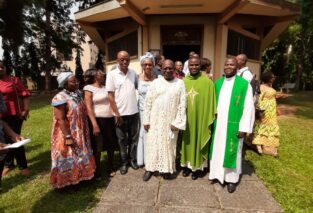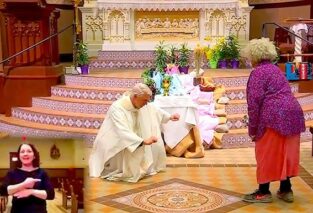On September 14, 1995, His Holiness Pope John Paul II, Servant of the Servants of God, Supreme Pontiff of the One, Holy, Catholic and Apostolic Church, who is today blessing us from a window in heaven, to borrow those felicitous words of his successor, Benedict XVI, signed a Post Synodal Apostolic Exhortation, an ecclesial document that has been serving as a road map for the Catholic Church that is in Africa. He entitled it Ecclesia in Africa (The Church in Africa).
This ecclesial document was the fruit of several years of reflection by the entire Catholic Church that is in Africa, which culminated in a meeting of all the bishops of Africa in Rome in April and May 1995, in what has come to be known as “The Special Assembly of the Synod of Bishops for Africa”.
The bishops met around the Successor of Saint Peter to reflect on the role of the Catholic Church in Africa against the backdrop of the terrible Rwanda genocide and other tragedies that were then ravaging, and have still continued to ravage, our continent. We are plagued with seemingly interminable civil wars, rampant corruption, bad governance, ravaging HIV/AIDS pandemic, etc.
Ten years after the proclamation of this historic document in Yaounde, Cameroon, the Church that is in Africa again came together in Yaoundé, from the 14th to the 17th of September 2005, at the behest of the Symposium of the Episcopal Conferences of Africa, Madagascar and the surrounding islands (SECAM), to take stock of the progress so far made and the challenges she has confronted, successfully or otherwise. As the representatives of the various Episcopal conferences, members of SECAM, succeeded each other on the podium of the Congress Center in Yaoundé, the question on everyone’s lips was what to do to promote the spread of the Gospel in the fields of evangelization, inculturation, dialogue, justice and peace or the means of social communications – the principal themes that make up this important ecclesial document.
The representatives of the Holy See in Yaoundé, Mgr Henryk Hozer, President of the Pontifical Council for Missionary Works, and Mgr Nikola Eterovic, President of the Synod of Bishops, were very complimentary of the missionary dynamism of the Church that is in Africa. Despite the numerous challenges to the spread of the Gospel in Africa, notably the seemingly endless civil wars, widespread corruption, the rapid and devastating spread of HIV AIDS, famine, etc, — the Church has not, as some would wish to see her, cowed to submission and silence.
On the contrary, said Mgr Eterovic, she has remained outspoken in her defence of human rights throughout the continent, resolutely refusing to be silent in the face of the numerous atrocities committed against the human person in several corners of Africa. As Mgr Eterovic rhetorically asked: how can the Church remain silent in the face of man’s inhumanity to man, she who has the absolute obligation to speak for those who have no voice? Giving a voice to the voiceless in Africa is what Ecclesia in Africa is all about.
Participants learnt that Pope John Paul II had, in November 2004, expressed his wish to convene a second Special Assembly of the Synod of Bishops for Africa. This wish, Monsignor Etorovic said, has already been confirmed by his successor, Pope Benedict XVI. The date is still to be announced.



